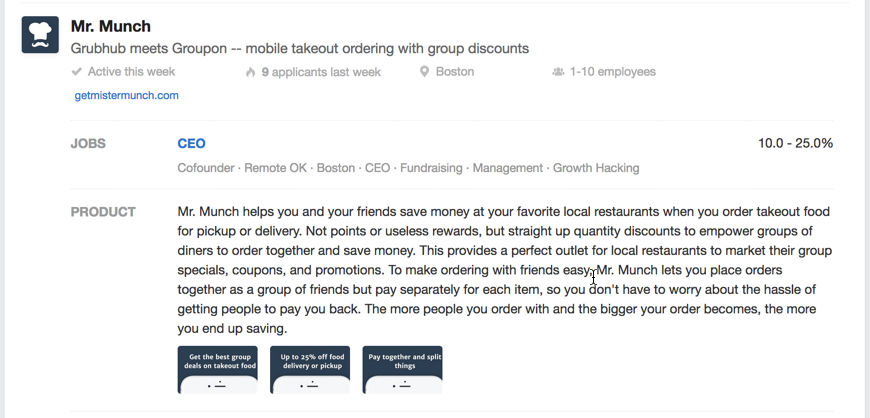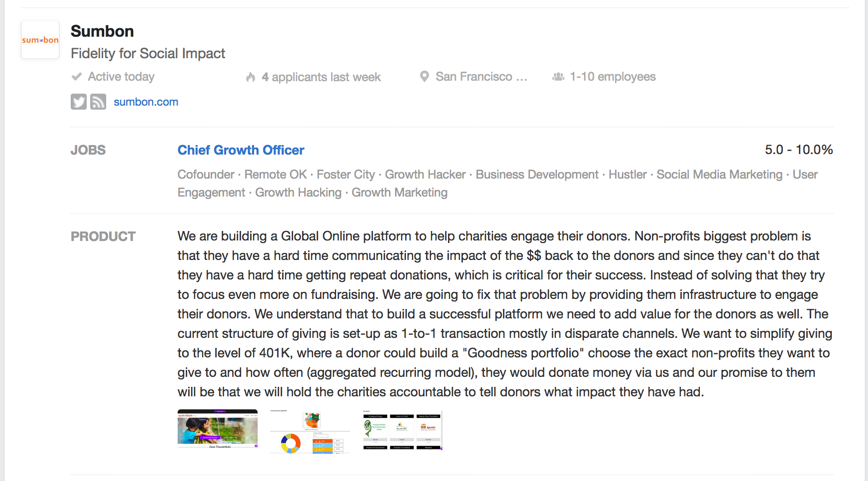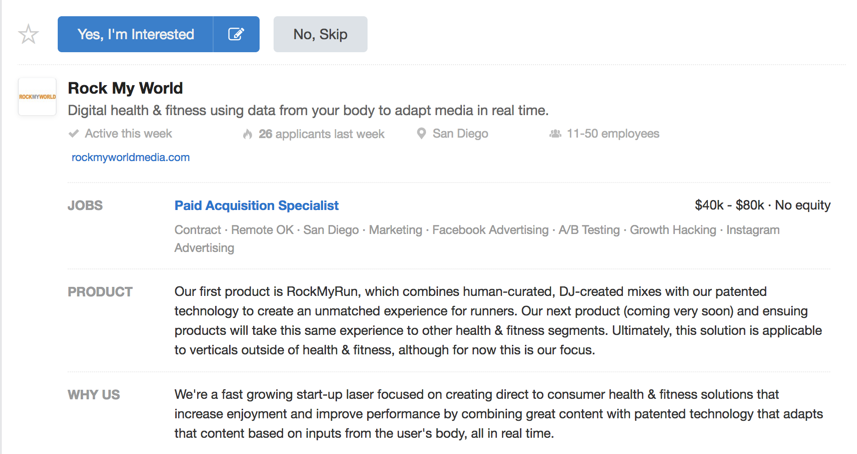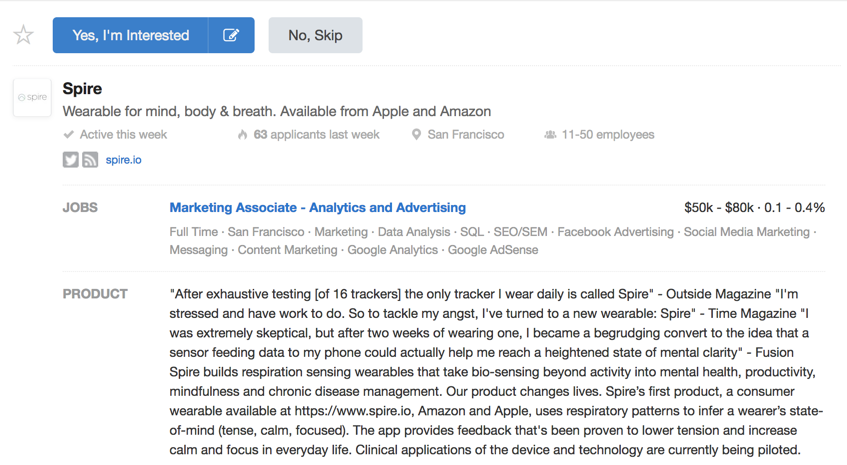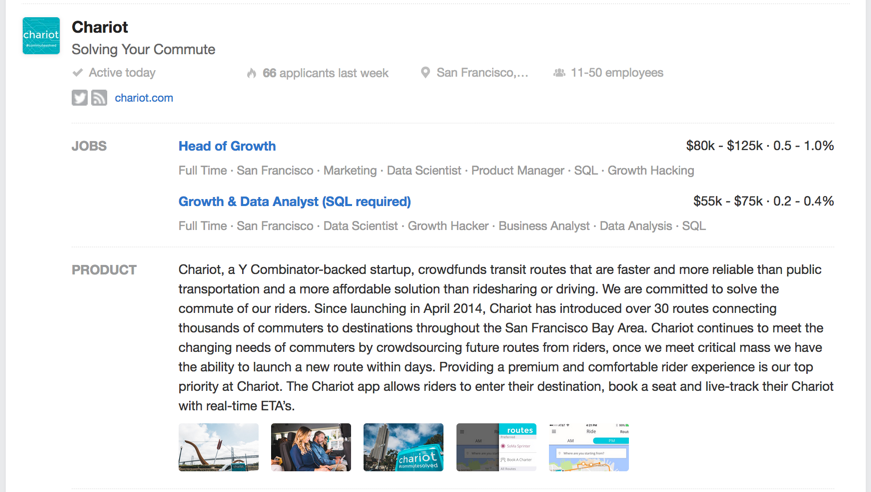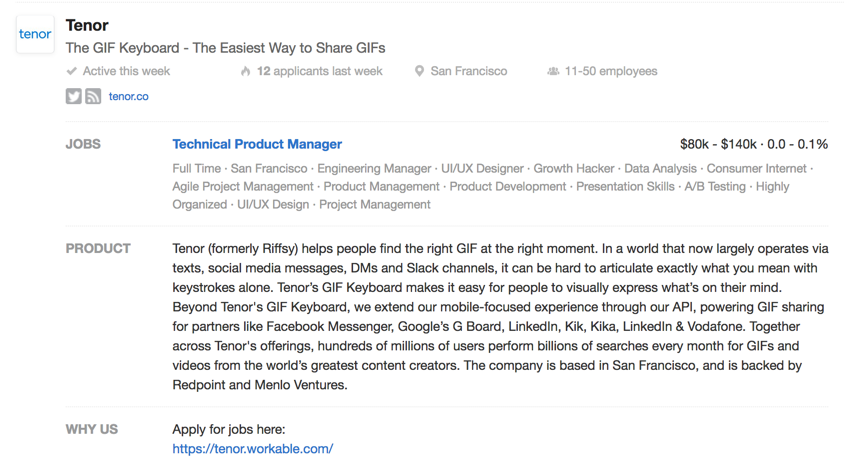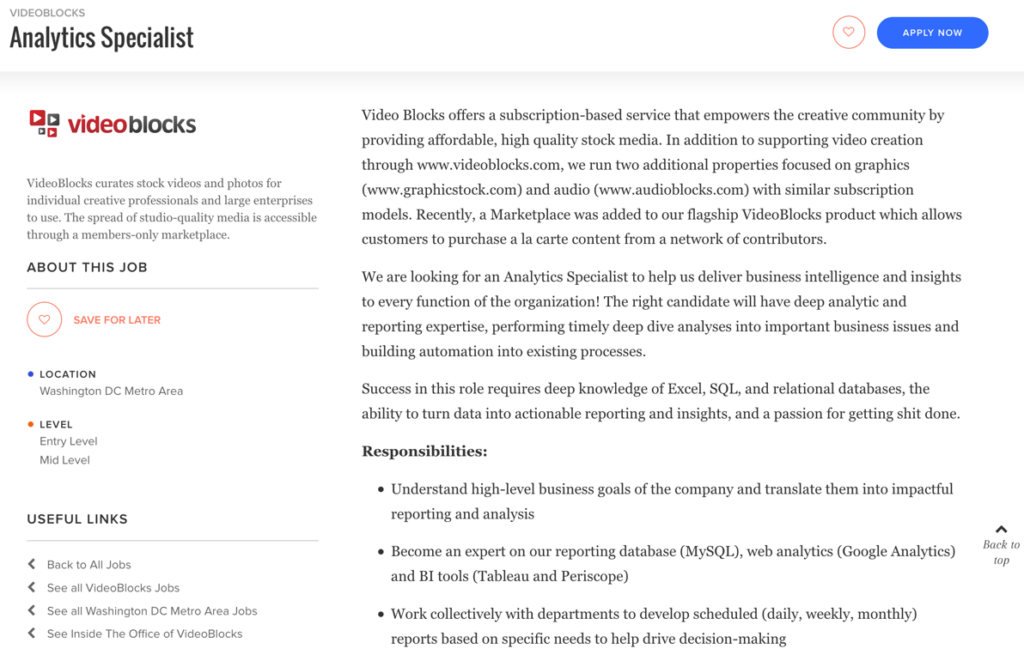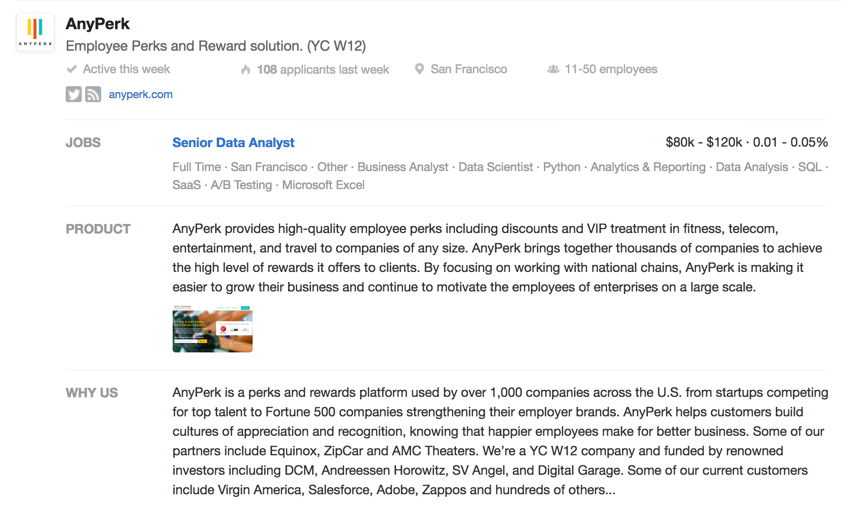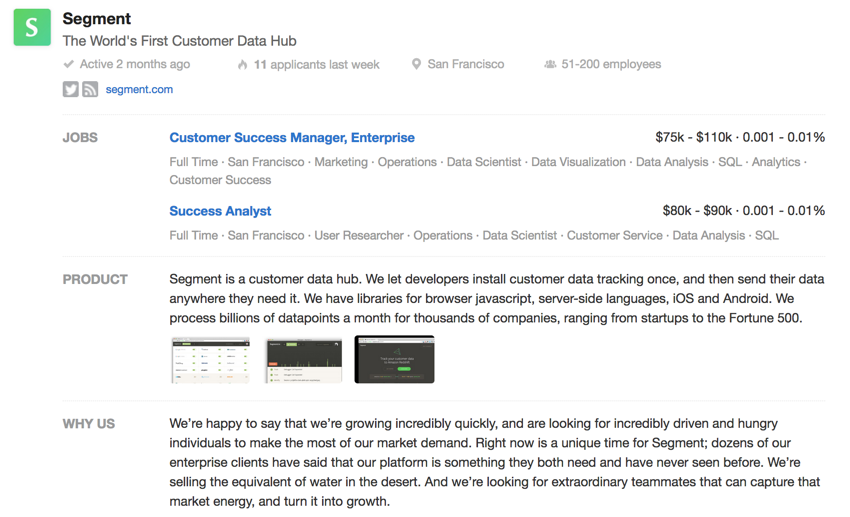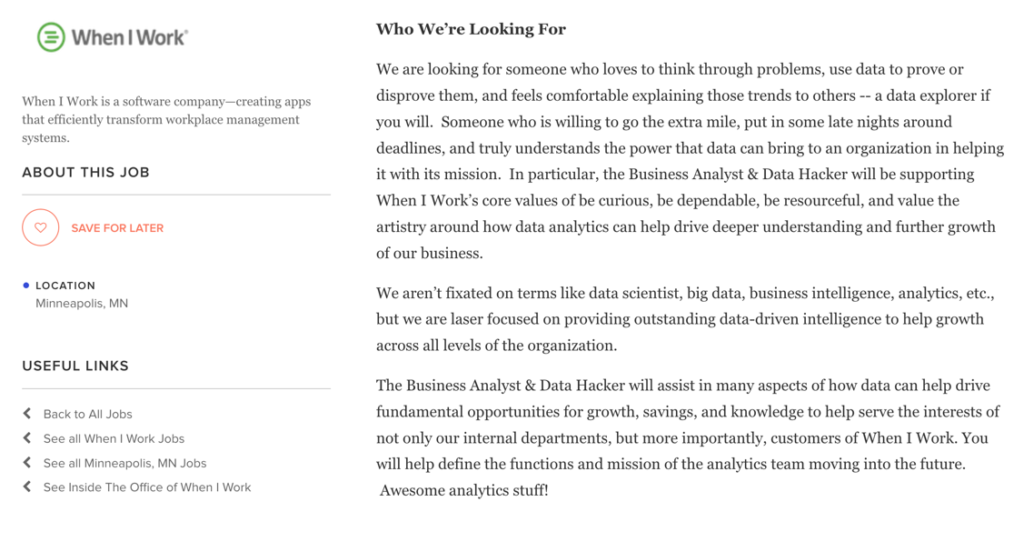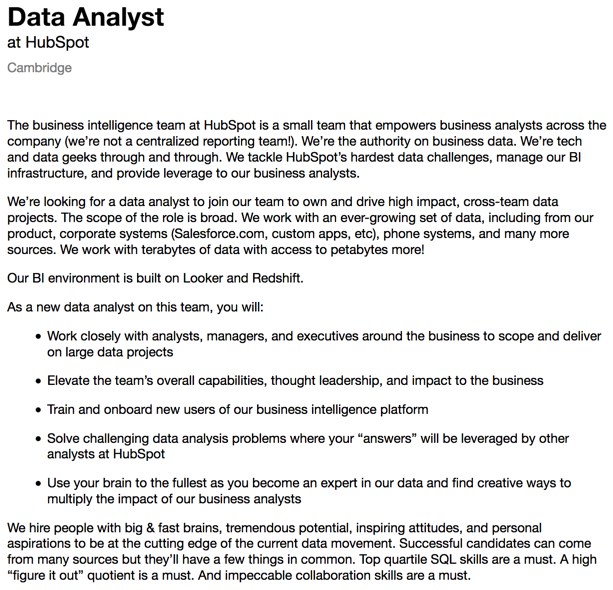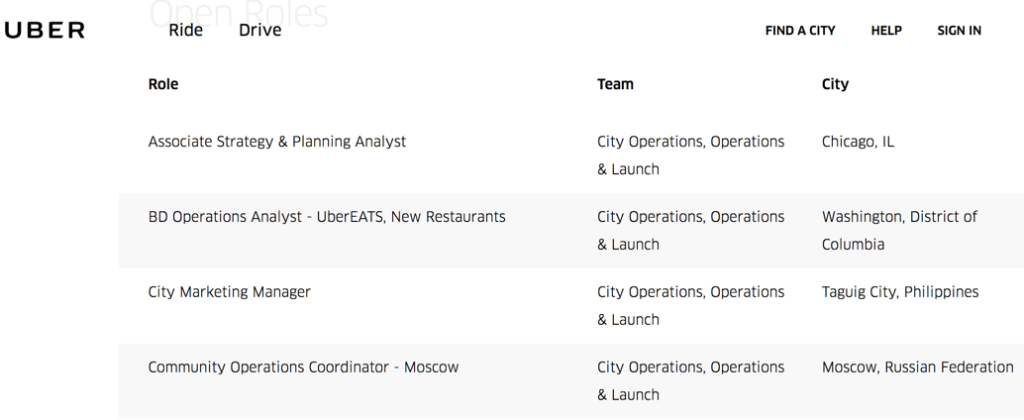Since I started mentoring with Springboard, I’ve been reflecting on how the students might go about finding analytics jobs, and what exactly someone means when they say that they want to find a job with a startup. “Startup” means many things to many people. How big is too big to be considered a startup? There’s no clean cut definition, but I want to point out what different types of analytics jobs tend to be available at companies in different stages of their growth.
You can think about these stages in terms of funding levels, team size, or responsibility sets – they all move roughly in sync with each other. I will try to point out company attributes that I consider important. If you’re looking at starting your career in analytics, or at what your trajectory could look like, I hope the following thoughts are helpful. Make sure to note – I naturally gravitate towards tech because that is what I know and where I have the most passion. Similar thoughts may or may not hold as you move to other industries. Finally, if the company that you are working for has an analytics component as part of the core functionality (think Tableau – an analytics tool, Salesforce – a product where data provides core information to a manager, or Baremetrics – a product where data and visualizations ARE the product) then there could be a role for an analytics person at any stage.
With regard to the examples, be sure to keep in mind the time of publication of this article – I’m hopeful that the information here holds over time, but the specific companies will definitely move through different stages!
Super-Early: 1-5 employees, pre-seed or early seed (0-$750k)
This stage is all about proving traction – to yourself or potential investors. Analytics will help you measure it.
Where to look: angel.co – it’s free for startups and pretty focused on serving them effectively. It’s my go-to for early stages. Hacker News Jobs – YC’s hacker news jobs board is a terrific list, too, but it’s heavily trafficked. Standing out is hard, so be sure you’re a rock star.
Demand Generation/Growth Hacking/Marketing
The most impactful use for analytics at this stage only matters insofar as it generates additional growth. Help the team focus on a particular metric that matters to the business, but be prepared to adjust that metric quickly as you learn what’s important. You should be testing the effectiveness of marketing channels, either in terms of benefit for your time, or benefit for your money. When tracking product analytics, and the behavior of your users in the product, don’t get sucked in to looking at the number exclusively – understanding when you need to use qualitative feedback here is crucial. My advice? If it’s something that you’re interested in, reach out and see if you can do a free or cheap project for them. If you can prove that you can get them 10 (or 100) users, and why your data shows you that those could be loyal users, they’ll find room for you.
This role may or may not even be advertised – you sort of need to look around at local incubators and get involved in your local tech community and startup a conversation with folks working in areas that you are interested in. Be prepared to work on a “prove it” project.
Founder
Early Stage: 3-10 employees, small amount of funding ($500k-$2M), some traction
A company at this stage might be hiring for a real analytics person, but it’s more likely that you’re coming on as a marketer. Additionally, you’re likely on your own, to sink, swim, or fly. Try to find similarly placed folks at other companies at a similar stage (or a stage further) to help guide you. The expectations on you are likely to be intense, and you need to be ready to measure your own success along with that of the team. It’s an incredibly exciting time at a company, but is absolutely stressful. As long as you keep up with your growth goals, you can start understanding the product analytics as well, and ensuring a robust tracking implementation so that when you hit the next stage, you’re ready to rock and roll.
Where to look: Angelist – you can sort by size/stage, (and maybe Linkedin or TheMuse – some companies will be there but sorting through the noise is harder). Same deal with Hacker News Jobs as above.
Marketing Analytics (Growth Marketing / Growth Hacking, Paid Ad Specialist, Content Analytics) –
Early-Mid: 10-30 employees (<$5m funding) – Decent traction
Product Analytics (Data Analyst, Data Analytics)
At this stage you’re at least likely to be focused on product metrics, but still related to growth of the product. Depending on the makeup of the rest of the team, you might get some guidance from your executives on Lean Startup style metrics, but be prepared to learn as you go and be mostly self sufficient. It’s important here to focus on Dave McClure’s Pirate Metrics – What events, marketing sources, or user product choices lead to Acquisition, Activation, Retention, Referrals, and Revenue?
A company at Chariot‘s size is looking for a growth analyst.
Product management
Middle Stage: 30-100 ($5-30m funding) – significant traction and user base
If I was trying to start my career and break into the startup world, I would look hard at the opportunities in this stage. If you find a company that’s growing quickly, your role can grow quickly, too. You’ll have more senior folks there to learn from, and you’ll understand how analytics can really drive a company forward: you’ll have large enough data sets for your analyses to make noticeable differences. Finally, this is the stage where your ability to buy top shelf analytics tools starts to appear. As a startup techie, you probably keep abreast of the latest greatest software, but in order for your organization to afford it, you’ll have to have proved your value as an analyst and the value of that tool. The more data you have, the more value the tools bring, the more likely that you can see positive ROI.
These teams are also where you start needing multiple people in roles, so you don’t need to be the World’s Best Analyst on day 1. You “only” need to be very good, or be able to prove to them why you will be.
Check out my friends at VideoBlocks hiring for an entry or midlevel Analytics Specialist:
Late Stage: 100-300 employees ($30M+ raised)
Late stage companies have enough folks on the team to start to really specialize. The marketing analytics folks may start to branch from the product analytics, and you’ll start to see an analytics group form. Additionally, it’s where you start to drift away from really being a “startup” to me. In the context of companies over all time, sure, these are potentially still young, but the atmosphere really starts to be more like a “real company” and less like the early days of a startup. That has benefits – higher salaries, lower risk of the business folding at any given time, and better resources for doing what you need to do. But it also has drawbacks – this seems to be about the stage where not everyone can have a real relationship with the executive staff, and it’s also typical at this stage to have much lower equity offers due to the market salary and lower risk profile.
If you’re looking for your first job, try checking out Springboard to build your skills before you apply. I’m a mentor for them and think that they give you a good baseline set of skills.
Segment (coincidentally, one of my favorite tools of all!) shows some of the specialization happening:

